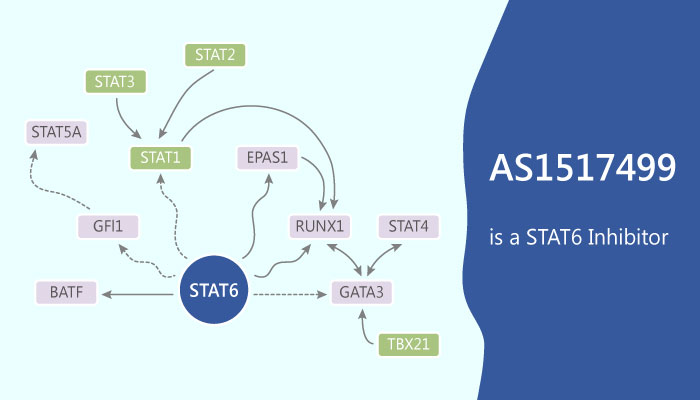Asthma is a common long-term inflammatory disease of the airways of the lungs. Asthma is a condition in which your airways narrow and swell and produce extra mucus. Airway hyperresponsiveness is a characteristic feature of asthma. Airway hyperresponsiveness consists of an increased sensitivity of the airways to an inhaled constrictor agonist, a steeper slope of the dose-response curve, and a greater maximal response to the agonist. Increased airway narrowing in response to nonspecific stimuli is a characteristic feature of human obstructive diseases, including bronchial asthma. Measurements of airway responsiveness are useful in making a diagnosis of asthma, particularly in symptoms that are consistent with asthma and have no evidence of airflow obstruction. Of these, interleukin-13 (IL-13) is one of the central mediators for development of airway hyperresponsiveness in asthma. Particularly, the signal transducer and activation of transcription 6 (STAT6) is one of the major signal transducers activated by IL-13.
In the present study, Yoshihiko Chiba, et al investigated the effect of AS1517499 on the development of antigen-induced BSM hyperresponsiveness. Firstly, AS1517499 is a STAT6 inhibitor, which ameliorates the antigen-induced bronchial smooth muscle hyperresponsiveness by inhibiting RhoA up-regulation in bronchial smooth muscles, by reducing IL-13 production in the airways in mice. Especially, AS1517499 shows a potent STAT6 inhibition with a 50% inhibitory concentration (IC50) of 21 nM. Besides, AS1517499 also inhibits the IL-4–induced Th2 cell differentiation of mouse spleen T cells with an IC50 value of 2.3 nM.

All in all, AS1517499 shows potent STAT6 inhibition. AS1517499 also inhibits IL-4-induced Th2 differentiation of mouse spleen T cells without influencing T-helper cell 1 (Th1) differentiation induced by IL-12.